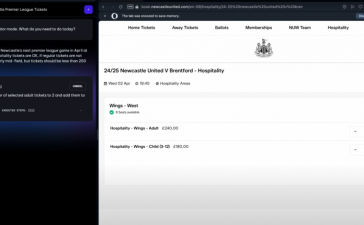The Department of Justice submitted their proposed remedies to the August federal court ruling that Google illegally monopolizes search, arguing that Google should be prohibited from using their own products like Chrome, Android and the Play App store to advantage their search-related business.
The proposed remedies might include a break up of the company, though the DOJ didn’t use language as strong as divest.
“Plaintiffs are considering behavioral and structural remedies that would prevent Google from using products such as Chrome, Play, and Android to advantage Google search and Google search-related products and features—including emerging search access points and features, such as artificial intelligence—over rivals or new entrants,” the filing read.
The DOJ also suggested that Google be barred from “default agreements, preinstallation agreements, and other revenue-sharing arrangements related to search and search-related products, potentially with or without the use of a choice screen.” This is a reference to contracts with firms like Apple and browsers like Firefox to make Google the default search engine, which was a key part of Judge Amit Mehta’s ruling.
However, the Oct. 8 filing only proposes remedies. The DOJ has until November 20 to file its final recommendations for how the court should take action against Google.
Google will file its own proposed remedies on December 20. Judge Mehta, of the US District Court for the District of Columbia, will hear a trial on remedies in April 2025 and is expected to make a final ruling later in the year. Google then has an opportunity to appeal, which it says it will.
Judge Mehta ruled in August that Google has monopoly power in the general search services market and in search text advertising. Mehta also ruled that Google’s exclusive distribution agreements are anti-competitive.
Cracking open the walled garden
The DOJ proposed remedies that will undermine its walled garden in search. Among these are stipulations that force Google to make “the indexes, data, feeds, and models used for Google search, including those used in AI-assisted search features” available to rivals. The stipulation also requires Google to share the “Google search results, features, and ads, including the underlying ranking signals, especially on mobile.”
Google has argued that sharing its data would violate user privacy. The DOJ said that if sharing data violates user privacy, a potential remedy could be that Google only collects data that it’s comfortable sharing.













